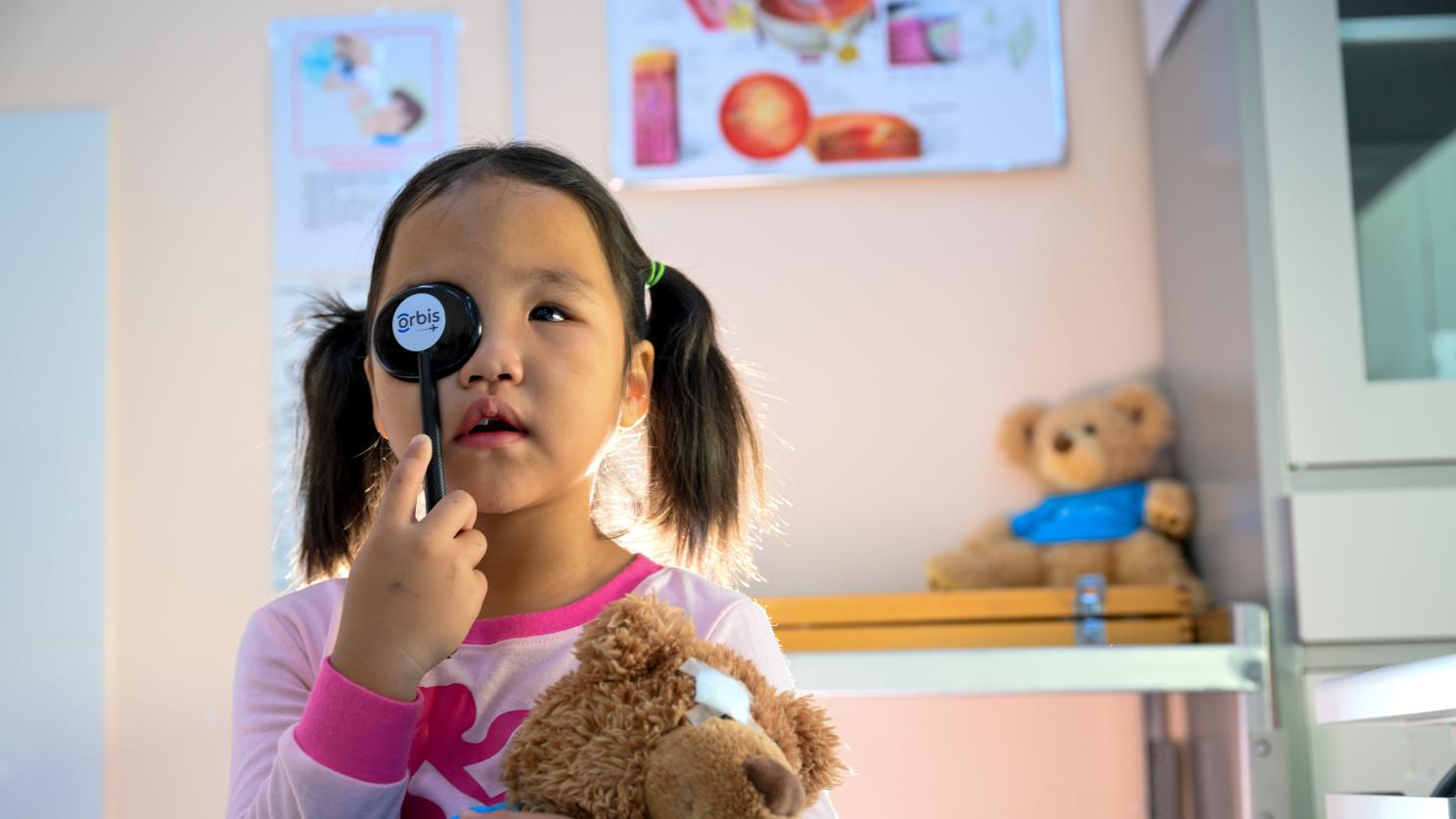FedEx and Orbis helping children see on World Sight Day
By Maurice Geary, Director of the Orbis Flying Eye Hospital
On World Sight Day, celebrated this year on October 10, we are focusing on children’s eye health worldwide. Eye screenings are vital for catching issues early and keeping children’s eyes healthy so they can live healthy and happy lives.
We have a steadfast dedication to this cause, as do our supporters and partners who provide all manner of assistance, from volunteer medical care to donation of supplies. FedEx is one of our most committed supporters, having worked with us for more than 30 years to ensure we can keep our commitment to improving eye care for kids and adults all around the world.

FedEx regularly provides us gift-in-kind (GIK) support of free shipping, which helped us provide sight-saving training and surgeries in Mongolia during our most recent Flying Eye Hospital project in August.
Gearing up for one of our Flying Eye Hospital projects takes a lot of shipping—we need to send a wide variety of supplies and materials to the plane’s location to prepare for flight, training, and surgeries. In July, we used the FedEx GIK account to ship to the plane administrative and office supplies, aircraft maintenance parts, and clinical equipment like a direct ophthalmoscope, retinoscope, and A/B ultrasound. We also shipped training tools and medical supplies, such as medicines, personal protective equipment (PPE), sutures, and sub-specialty surgical items.

The three-week Mongolia Flying Eye Hospital training program took place from August 4 to 22 by invitation of the Mongolia Ministry of Health. The project built the skills of local eye care teams using simulation training, hands-on surgical training and patient care, and ophthalmic workshops. It helped improve local partner hospitals’ capabilities to provide sight-saving care for their patients.
Training local eye care teams is one of the essential ways we improve access to eye care in countries where ophthalmic resources are limited. Mongolia faces an extra challenge: Health facilities tend to be concentrated in larger cities and towns, meaning rural communities experience extra barriers to getting the care they need.
